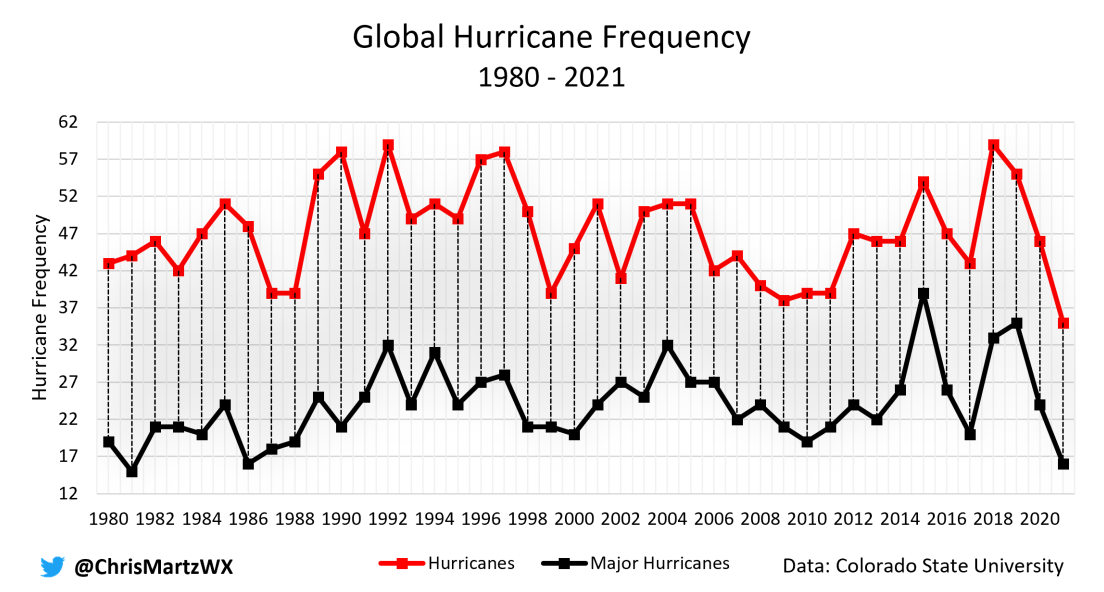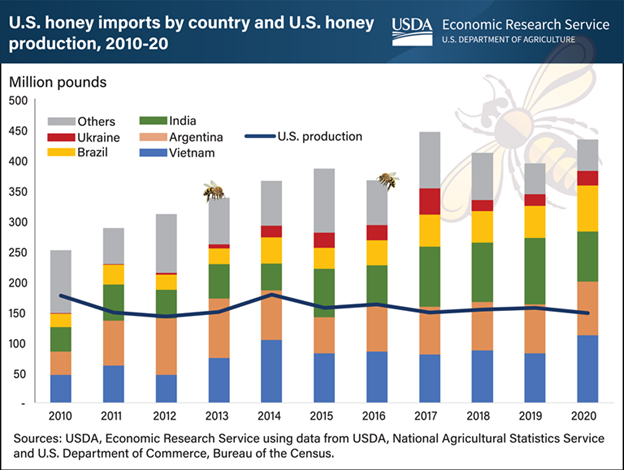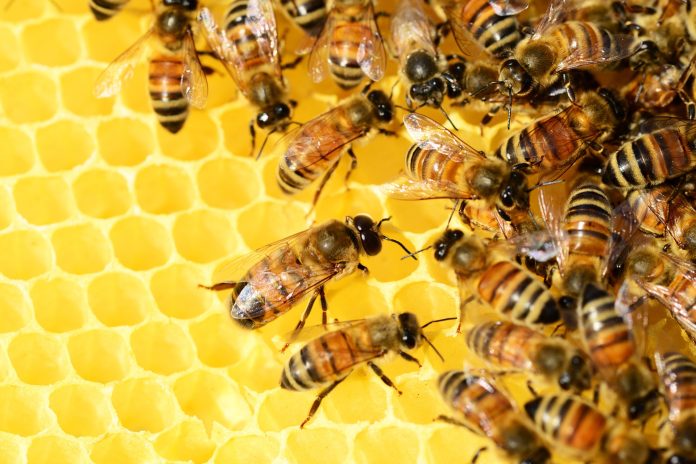UPI News posted an article which claims that deadly parasites, diseases, pesticides, and climate change are killing honey bee colonies across the United States. This is only partially true. Parasites, mites, possibly pesticides, and occasional damaging weather events have been linked to the decline of some honey bee populations, however no losses can be attributed to climate change.
The article, “Parasites, pesticides, climate change linked to loss of honey bee colonies,” written by Joe Fisher with UPI News, describes a recent study which claims that honey bee colony die-offs are occurring across the United States due to “climate change, parasitic mites and pesticides,” among other variables.
Research discussed in Climate at a Glance: Bees and Climate Change shows that a variety of factors are contributing to Colony Collapse Disorder (CCD), a condition where bee hives suddenly experience massive die-offs; climate change is not among them.
Among the causes of CCD listed by the U.S. Environmental Protection Agency (EPA) are:
- Honey bee killing, invasive varroa mites;
- New and emerging insect viruses;
- Pesticide poisoning;
- Habitat changes and lack of food sources;
- Combinations of the above factors.
Temperature and precipitation may also have an effect on bees, but there is no data showing that periods of intense, bee-killing heat is occurring more frequently, and precipitation increases in the United States have been modest and gradual, with no sign of increasing intense rainfall, or drought.
One of the authors of the study referenced in the UPI News piece stated in an interview that “changing climate and high-profile extreme weather events like Hurricane Ian — which threatened about 15% of the nation’s bees that were in its path as well as their food sources — are important reminders that we urgently need to better understand the stressors that are driving honey bee colony collapse and to develop strategies to mitigate them.”
In reality, Hurricane Ian, while destructive, was not evidence of an increasing trend of severe tropical storms. As discussed in exhaustive detail in a Climate Realism post, here, the best available data show that there is no trend of increasing hurricane frequency or intensity. (See figure below).

There is no increase in hurricanes, therefore, an increase in hurricanes cannot be responsible for honey bee declines.
Additionally, despite frequent reports about declining honey bee numbers, as described by H. Sterling Burnett in a Climate Realism post, “Wrong, Tasting Table, Popular Foods Are Doing Well, Not Failing Under Climate Change,” global honey production has increased amid modest global warming, even as U.S. production has declined somewhat because of CCD. (See figure below).

Since climate change is a global, logic would suggest that there should be a global impact on honey supplies, but there is not. In fact, modest warming and carbon dioxide fertilization are contributing to global greening, increasing the amount of available food sources—pollen and nectar—for honey bees.
The fossil record suggests that early bees evolved around the same time as flowering plants, during the Cretaceous period, and more modern bees likely showed up around the Miocene, but possibly as far back as the Oligocene. In all of these periods, there was more carbon dioxide in the atmosphere than today, as well as higher average global temperatures. Bees perform best when there are flowering plants to pollinate.
Solid research ties bee declines to a variety of factors, but because are no trends of worsening global weather patterns, there is equally no evidence that recent climate change is a contributing factor to honey bee deaths or CCD. UPI News and researchers would serve themselves, the public, and the bees, better if they focused their attention on the established causes of CCD and how to mitigate or prevent it, rather than trying to garner headlines by jumping on the climate crisis bandwagon by misleadingly tying the decline of bees in the United States to climate change.

















